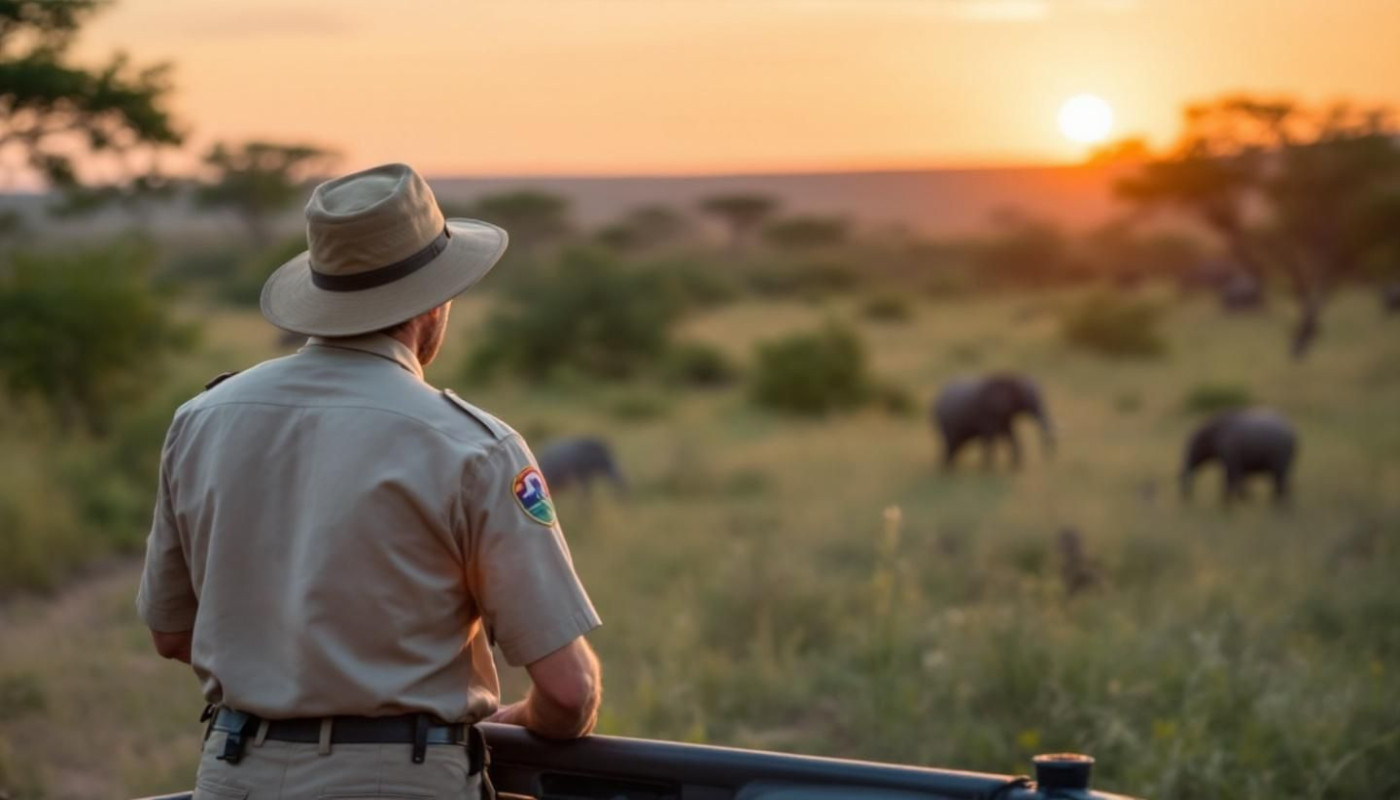Table of contents
Choosing to embark on an ethical safari transforms not just your travel experience but the very landscapes and communities you visit. By focusing on responsible practices, these journeys offer memorable wildlife encounters while ensuring positive impacts on conservation and local livelihoods. Exploring how ethical safaris can elevate your adventure will inspire you to travel with purpose and make a real difference.
Responsible wildlife encounters
Ethical safari experiences focus on animal welfare and wildlife conservation by ensuring responsible tourism practices that protect natural habitats and the creatures within them. Safari operators adopting these standards educate guests about the significance of respecting animal behavior; this not only limits human intrusion but also helps sustain the delicate balance of the ecosystem. Observing animals as they go about their daily lives—without chasing, feeding, or crowding—creates deeply authentic moments for travelers and helps reduce stress on wildlife populations. Sustainable travel choices like these directly support both the immediate well-being of animals and the broader mission of preserving wilderness areas for future generations.
Non-intrusive observation remains at the heart of every ethical safari. According to the chief conservation officer of a prominent wildlife reserve, this approach involves maintaining respectful distances, minimizing noise, and restricting the size and frequency of tour groups to prevent disruption. This method benefits animals by allowing them to behave naturally, while visitors enjoy more meaningful and unscripted encounters. Responsible tourism in this context builds a foundation for long-term wildlife conservation, as participating travelers become advocates for animal welfare and environmental protection. For those interested in experiencing a truly ethical safari that prioritizes the planet, wildlife, and local communities, visit here to discover more about sustainable travel options in Tanzania.
Supporting local communities
Ethical safaris go beyond wildlife observation by prioritizing community-based tourism, directly involving and uplifting local communities. This approach ensures that eco-friendly travel initiatives provide employment opportunities, from guiding and hospitality to crafts and conservation. Local people are empowered through education and skills development, strengthening sustainable development within the region. Community-based tourism, as explained by the director of community engagement for a prominent safari region, refers to travel experiences where residents play a central role in shaping tourism activities, allowing them to share their local culture with visitors in authentic ways while retaining control over their resources. Genuine interactions between travelers and residents foster mutual enrichment, with guests gaining a deeper understanding of traditions, history, and daily life, and communities experiencing a renewed sense of pride and cultural preservation. Ethical safaris thus create a positive cycle that benefits both hosts and travelers, embedding respect and shared growth at the heart of every adventure.
Minimizing environmental impact
Ethical safaris are designed around eco-friendly safari principles that prioritize reducing environmental impact, promoting sustainable safari experiences, and supporting green tourism. These adventures often utilize accommodations built with sustainable materials, renewable energy sources, and minimal disruption to natural habitats. Advanced waste management practices, such as composting organic materials and recycling, are integral to low-impact travel, ensuring that traveler presence does not harm local flora or fauna. Transportation is also carefully chosen, with many operators opting for fuel-efficient vehicles or encouraging walking safaris to further limit emissions.
A sustainability manager at an eco-lodge defines carbon footprint reduction as the process of minimizing greenhouse gas emissions caused by energy use, transport, and other operational activities. Its significance for safari operations lies in preserving fragile ecosystems, preventing pollution, and maintaining biodiversity, which is vital for both wildlife and local communities. Responsible environmental management not only helps protect the destinations travelers come to enjoy but also enriches the visitor experience, making each sustainable safari a meaningful interaction with nature. By prioritizing environmental responsibility, ethical safaris allow travelers to appreciate the true wonders of the wilderness without contributing to its decline.
Education and meaningful experiences
Ethical safaris present a unique platform for ethical travel enthusiasts to engage in safari education through immersive activities like guided nature walks, wildlife tracking, and participatory conservation talks. These carefully crafted experiences nurture conservation awareness and wildlife learning, allowing travelers to witness firsthand the complex interactions within ecosystems, and observe animal behaviors in natural habitats rather than controlled environments. By learning directly from local experts and conservationists, guests gain insights into both cultural and ecological aspects, which deepens their appreciation for protected areas and the intricate work required for preservation.
One key component in these settings is conservation interpretation, a technical approach used by educators in conservation areas to facilitate meaningful travel experience. Conservation interpretation combines storytelling, scientific information, and interactive engagement to translate complex ecological concepts into memorable, relatable lessons for visitors. This method not only enhances understanding but also encourages personal connections with nature, inspiring guests to take active roles in supporting conservation efforts. Ethical safaris that prioritize conservation interpretation empower travelers to return home with a sense of responsibility and a lasting commitment to wildlife protection, making the journey both transformative and impactful.
Long-term benefits for destinations
Ethical safaris create a lasting impact by setting a foundation for sustainable tourism, which promotes the well-being of wildlife, local communities, and natural environments. The ripple effect of responsible travel choices can be seen in improved conservation legacy, as funds and awareness generated from these experiences support anti-poaching efforts, habitat restoration, and scientific research. In many cases, local communities become active stewards of their surroundings, empowered by job opportunities and education that foster pride and engagement in preserving their unique heritage. Sustainable tourism initiatives often lead to enhanced infrastructure, healthcare, and educational resources, ensuring that the benefits reach far beyond the immediate tourism industry and contribute to overall community resilience.
The chief executive of a tourism board often highlights the role of sustainable destination management, a technical term referring to the careful planning and regulation of tourism activities to balance economic growth with environmental and cultural preservation. By adopting this approach, destinations can maintain their natural beauty and biodiversity while providing rewarding experiences for travelers. Ethical safaris exemplify responsible travel by adhering to strict guidelines that minimize ecological disturbance and prioritize local interests, thereby establishing a model for other regions aiming for long-term benefits. Ultimately, the legacy of conservation and sustainability fostered by ethical safaris ensures that future generations inherit thriving, vibrant destinations.



